While military utility is seemingly waning, the concepts of a nation’s image and soft power are gaining currency[1]. Thus, China attempts to cultivate an attractive national image of a peaceful, trustworthy China[2]. A strong nation brand, or “competitive identity” is predicated on attractive culture and values, political ideals and policies, and a trustworthy reputation. (Nye, Anholt, van Ham et al) It can be buoyed by a healthy tourism industry, history and high-quality brands. Ultimately, it is credibility and truth. (Anholt, 2006: 40-1)
[2] This can be seen in its role as broker over the North Korean nuclear stand-off and its attempts to win the opportunity to hold the 2008 Olympics (N. Snow & P. Taylor, 2009: 88)
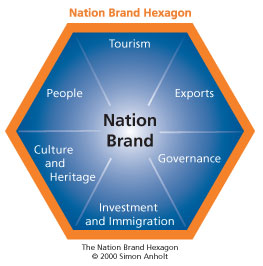
China had always seen itself as the great Middle Kingdom superior to all others (Snow & P. Taylor, 2008: 284). It has been insular and cared little about its international image (Ramo, 2007: 12). China’s public diplomacy strategy was predicated on a number of misunderstandings which have created serious deficiencies. China has a long-held belief that attractiveness derives from a nation’s size and power, hence the government focused on its economic ‘international position and not on its image’ and ‘China assumed its cultural and historical longevity will automatically earn it respect’ (Wang, 2008: 261). China also conflates foreign governments’ sentiments towards China with the, often contradictory, impressions their publics have (Wang, 2008: 260). The reasons for China’s recent focus on its international image are contained in its economic growth model; foreign direct investment and exports, and ambitions to present itself as a viable alternative to US hegemony. China is competing in the global market place over brand export, FDI and tourism (Melissen, 2005: 172), thus how foreign peoples view China is highly significant[3].
[3] http://en.people.cn/90001/90780/7092287.html
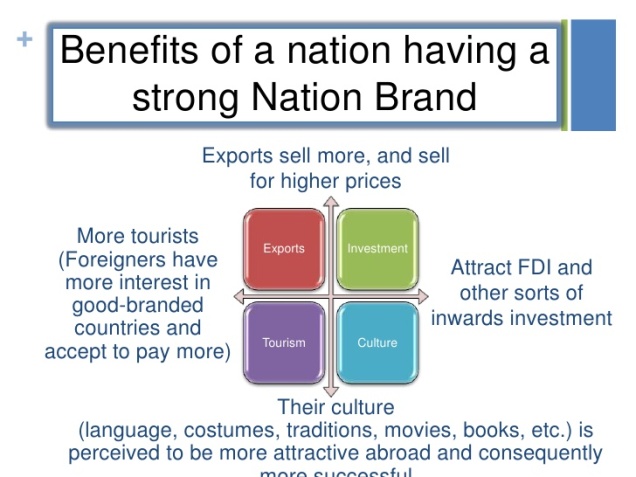
China has been working hard to improve its national image and attractiveness utilising its history, culture, language and particularly its economic wealth[4]. (Snow, N & Taylor, P, 2009: 285) China invests about $10billion annually, in what it terms as ‘external propaganda’, improving its image through the media, publishing, education, the arts, sport (Shambaugh, 2015). This can be widely seen in the foreign aid packages which totalled approximately $1billion in 2004 (Snow, N & Taylor, P, 2009: 283) and rising to $317billion in 2013 dispersed across ninety-two emerging-market countries throughout six regions[5] (China’s Foreign Aid Offensive). It is debatable whether all China’s efforts have had any impact[6]. So, why are China’s significant and numerous efforts not changing its image?
[4] https://www.foreignaffairs.com/articles/china/2015-06-16/china-s-soft-power-push
[5] The regional shares of assistance 2001-2014 (in billions): Africa ($330), Latin America ($298), East Asia ($192, excluding the bulk of China’s aid to North Korea), the Middle East ($165), South Asia ($157), and Central Asia ($69) China’s Foreign Aid Offensive – http://www.rand.org/blog/2015/06/chinas-foreign-aid-offensive.html
[6] http://www.chinafile.com/conversation/why-chinese-soft-power-such-hard-sell http://en.people.cn/90001/90780/7092287.html
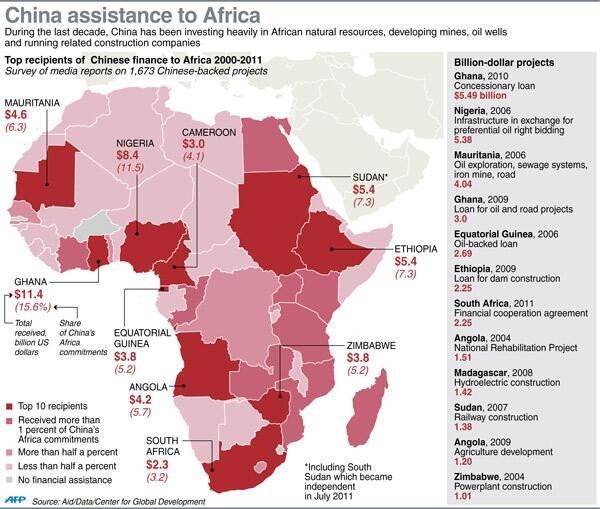
Despite the plethora of infrastructure projects[7] and the vast sums of aid there have been question marks[8] over China’s benevolence in Africa due to sub-standard building (domestically China has suffered from numerous structural collapses),[9] trade deficits, ignoring human-rights issues[10] and its lack of employing African labour[11]. Nevertheless, China has responded with rebuttals of the criticisms and to explain its investments in Africa[12].
[7] http://mgafrica.com/article/2015-09-18-multi-billion-dollar-deals-chinas-27-biggest-active-projects-in-africa http://theconversation.com/how-and-why-china-became-africas-biggest-aid-donor-57992
[8] https://www.brookings.edu/opinions/chinas-aid-to-africa-monster-or-messiah/
[9] http://blogs.wsj.com/chinarealtime/2015/06/19/more-tofu-buildings-string-of-collapses-causes-alarm-in-china/ https://www.bloomberg.com/view/articles/2012-08-29/china-s-bridges-are-falling-down http://www.bbc.co.uk/news/world-asia-china-27274086 http://www.dailymail.co.uk/news/article-2192940/Made-China-Motorway-collapses-10-months-built–manage-build-worlds-largest-armchair.html
[10] http://globalpublicsquare.blogs.cnn.com/2012/10/29/is-china-good-or-bad-for-africa/ and http://news.bbc.co.uk/1/hi/world/africa/7086777.stm#map
[11] http://www.huffingtonpost.com/entry/china-workers-africa_us_57ad51ace4b071840410bb60
[12] https://www.wsj.com/articles/SB10001424052702304893404579532220294759920?mg=id-wsj&mg=id-wsj
China has also delivered financial aid to disaster hit areas across East and South East Asia; $2.6million – 2004 South Asian tsunami and donated $2million alongside sending a support team of experts following an earthquake in Java in 2006 (Snow & P. Taylor, 2008: 284). However, despite China’s huge effort to improve its regional and international image it is undermined by recent and current issues such as Tibet,[13] crackdowns in Xinjiang,[14] China’s Taiwan policy,[15] stirrings of discontent in Hong Kong[16] and its predation of the islands in the South China Sea.[17] Despite China’s claims to legitimacy[18] of its building activities on islands and reefs,[19] there has been a vociferous response from several neighbours.[20]
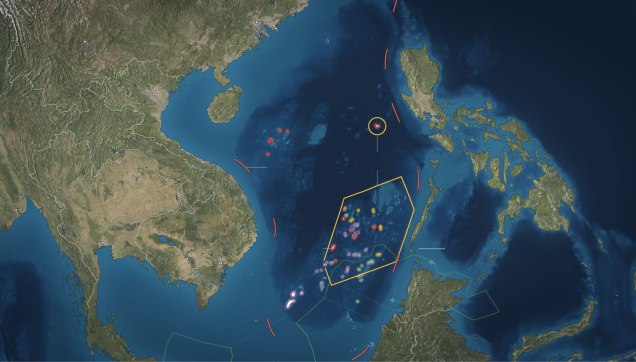
[13] http://www.eastwestcenter.org/publications/tibet-china-conflict-history-and-polemics https://freetibet.org/about/china-argument
[14] http://thediplomat.com/2015/01/beijings-xinjiang-policy-striking-too-hard/
[15] http://www.bbc.co.uk/news/world-asia-34729538 http://nationalinterest.org/blog/the-buzz/are-china-taiwan-heading-towards-conflict-17860
[16] http://www.spectator.co.uk/2014/10/hong-kong-vs-china/ https://www.ft.com/content/8e54c51c-e7a7-11e6-893c-082c54a7f539 http://www.bbc.co.uk/news/business-35068501 http://globalnews.ca/news/1587652/hong-kong-protests-key-issues-and-people-in-the-dispute/
[17] http://www.defensenews.com/articles/japan-warns-china-over-territorial-aggression
[18] http://www.aljazeera.com/indepth/opinion/2016/07/china-cares-south-china-sea-160714105126859.html
[19] https://www.nytimes.com/interactive/2015/07/30/world/asia/what-china-has-been-building-in-the-south-china-sea.html?_r=0
[20] https://www.theguardian.com/world/2016/dec/08/vietnam-dredges-reef-disputed-with-china https://www.wsj.com/articles/asean-chief-says-cant-accept-beijings-south-china-sea-claims-1430022922
China has also used its newfound economic muscle to host a series of prominent international events; the Olympics in 2010,[21] the Shanghai expo 2010,[22] and setting up the Chinese Super League. Unfortunately for Beijing the Olympics was not without controversy; human rights, environmental issues and fake performances.[23] This, of course does much to undermine China’s nation branding efforts in the areas of people and governance but it does not end there. If one considers the governance aspect of the hexagon which connects to FDI, China hardly has a great reputation either. China has been plagued by issues related to corruption[24] and missing businessmen,[25] dumping on international markets,[26] deliberately devaluing its currency[27] and international companies hardly compete on a level-playing field.[28] Additionally, it has suffered several serious health related scandals; SARS[29] and baby milk powder[30] amongst others.[31] An aspect of the hexagon which China has made great efforts to export and should excel is culture and heritage which also links to tourism, a very lucrative industry for China.[32] However, this is nullified by unfavourable images abroad of life in China and media stories of artists under (house) arrest and not being able to travel abroad.[33]
[21] http://www.ccsenet.org/journal/index.php/ass/article/view/232/192
[22] http://www.ipsnews.net/2010/04/china-world-expo-a-launch-pad-for-lsquonew-public-diplomacyrsquo/
[23] http://edition.cnn.com/2008/WORLD/asiapcf/08/12/china.promises/ http://www.espn.co.uk/skiing/summer08/news/story?id=3543618 http://abcnews.go.com/International/China/story?id=5565191&page=1
[24] http://blog.transparency.org/2014/12/03/five-reasons-corruption-is-getting-worse-in-china/ http://www.pewglobal.org/2015/09/24/corruption-pollution-inequality-are-top-concerns-in-china/
[25] http://www.economist.com/news/china/21716054-chinese-agents-may-have-crossed-line-again-billionaires-disappearance-rattles-hong-kong http://www.bbc.co.uk/news/business-35068501
[26] http://www.bbc.co.uk/news/business-35559540 http://www.bbc.co.uk/news/business-38298488
[27] https://www.ft.com/content/444c5bc8-3fca-11e5-9abe-5b335da3a90e https://www.wsj.com/articles/obama-administration-softens-criticism-of-chinas-currency-policy-1445286754
[28] https://backchannel.com/when-it-comes-to-china-googles-experience-still-says-it-all-bdc4eeedd32c#.k5cpiglc4 http://www.bbc.co.uk/news/technology-36561428 https://hbr.org/2006/11/hedging-political-risk-in-china
[29] http://edition.cnn.com/2003/WORLD/asiapcf/east/04/18/sars.china/ http://www.smh.com.au/articles/2003/04/21/1050777200168.html
[30] https://www.theguardian.com/world/2009/nov/24/china-executes-milk-scandal-pair http://news.bbc.co.uk/1/hi/7720404.stm
[31] http://edition.cnn.com/2014/07/29/world/asia/explainer-china-meat-scandal/ http://www.telegraph.co.uk/news/worldnews/asia/china/8476080/Top-10-Chinese-Food-Scandals.html
[32] https://www.travelchinaguide.com/tourism/2016statistics/inbound.htm
[33] http://www.smithsonianmag.com/arts-culture/is-ai-weiwei-chinas-most-dangerous-man-17989316/ http://www.telegraph.co.uk/news/worldnews/asia/china/11155045/Four-years-on-Nobel-Prize-winner-Liu-Xiaobo-still-unable-to-collect-prize-from-Chinese-prison.html
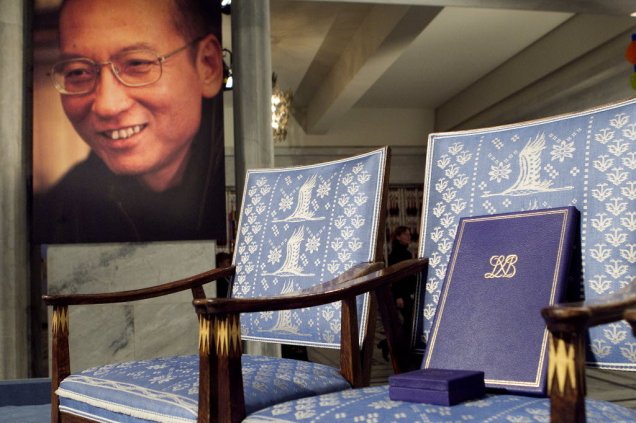
What can China do? Can China rebrand its image in a similar fashion to that of post-war Japan and Germany; national image reinvention based on use of high-quality products and sporting achievement? (Anholt, 2006: 91, Melissen, 2005: 172) This seems highly unlikely as both nations were ostensibly US satellites.[34] More problematic for China is the international view of its products, with the exception of Lenovo, as either cheap or fake.[35] The Chinese government is attempting to tackle the problems though[36] and to learn from past mistakes. (Snow, N & Taylor, P, 2009: 287) However, the problem for China is that perception often exists long after the reality has died. (Anholt, 2009: 112) China counters the negative impression is a result of its weak position in the global media environment, probably due to restrictions on its domestic media, and thus not being able challenge the dominant western media. (Wang, 2008: 9)
Despite the criticisms of western media dominance, the roots of the problem reside in the government and its determination to maintain a one-party state. Its public diplomacy efforts are largely construed as contrived propaganda, its benevolence to Africa as self-aggrandisement and its initiatives government orchestrated rather than naturally emanating from its civil society or business sector. Thus, its efforts lack the credibility that is so essential for creating a strong nation brand. The best thing China can do is to release the shackles, allow democracy to flourish along with greater human rights and media freedom which should foster a civil society, innovation and entrepreneurialism and allow its people and manufactures to speak for themselves. That, however, seems a long way in the future.
[34] Thus they neither needed to build a military or engage in international political leadership.
[35] http://www.dailymail.co.uk/news/article-2016885/Fake-Apple-store-China-convincing-staff-fooled.html http://www.cnbc.com/2016/07/08/amazons-chinese-counterfeit-problem-is-getting-worse.html http://abcnews.go.com/WNT/story?id=130381
[36] http://www.telegraph.co.uk/news/2017/01/17/china-busts-50-factories-making-fake-branded-seasoning-dangerous/ http://www.economist.com/node/1730968
References
Anholt, S., (2009). Places: Identity, Image and Reputation
Anholt, S., (2006). Competitive Identity: The New Brand Management for Nations, Cities and Regions
van Ham, P., ‘Place Branding: The State of the Art’ in G. Cowen and N. Cull (eds), Public Diplomacy in a Changing World
Melissen, J., (ed.), (2005). The New Public Diplomacy. New York: Palgrave MacMillan.
Ramo, J., (2007). Brand China. London: Foreign Policy Centre http://fpc.org.uk/fsblob/827.pdf
Shambaugh, D., (2015) China’s Soft-Power Rush https://www.foreignaffairs.com/articles/china/2015-06-16/china-s-soft-power-push
Snow, N. & Taylor, P., (eds), (2009). Routledge Handbook of Public Diplomacy. New York: Routledge
Wang, Y., ‘Public Diplomacy and the Rise of Chinese Soft Power’ in G. Cowen and N. Cull (eds), Public Diplomacy in a Changing World
I find this blog nicely assembled as it shows a wide variety of resources and references that reflects a deep research on the topic.
You raise interesting questions about China’s Diplomatic operations and efforts towards the amelioration of outside perceptions. And also I really liked your conclusion on China’s best approach towards raising its credibility and improvement of the civil society conditions
However, in a way I would like to see more of your personal overview as it seems a little over referenced. In my opinion, the fact that you have over 40 references for a blog entry makes it look more like an academic essay.
Besides that I think is a well made coherent piece of work,
Keep up the good work!
LikeLike
Thank you for your comment captain. The references to articles are just to support my voice or argument and offer the possibility for anyone to read more on the issues.
LikeLike
This piece is certainly not for the faint-hearted. It has right from the start made its intentions clear -that China’s public diplomacy efforts are in vain. My view however is that the piece could have been presented in a more balanced way and asked the reader to judge whether or not China’s public diplomacy efforts are worthwhile or pointless? For example, the statement “Its public diplomacy efforts are largely construed as contrived propaganda” is very subjective and could be more subtle. Also, I think for the purpose of this blog the number of links are far too many and contributed to making the piece a bit tedious. While China is by no means blameless I think some of the issues you raised are common among many states are not just specific to china – issues such as corruption, restrictions on its domestic media, self-aggrandisement and dumping on the international market. Regarding the latter however it probably was just a case of the EU using protectionism in that it admits, “It said it would not allow “unfair competition” to threaten Europe”. On the plus side, you use a good mix of academic as well as other sources to illustrate your points so well done there.
LikeLike
Nice work deejlondon777, i concur with most of your points. Their actions in Africa as well as domestically are often questionable. However them embracing democracy i am not so sure about. It seems that they have done reasonably well under one party rule, as they have become a super economy, are gaining more state power in the East-Asia region and they have brought a significant % of people out of poverty. Of course there are issues like corruption and human rights as you mentioned, but these exist also in many other states. I reckon China has been quite successful using the model of capitalist economy under authoritarian rule. I would not be so sure if embracing democracy would mean a quicker development for them. I would like to see what the next 20 years will bring for them. Maybe their model will prove as an alternative to the West’s.
LikeLiked by 1 person
This is a good post, with a decent number of references to the literature. You make some good points and have included some nice illustrations, although interspersing your text with footnotes looks a bit odd.
You argue that China needs to conform to the Western model of good government if it is going to exert soft power. However, is there a danger that we are imposing our concept of soft power on other countries with different cultures, systems and ways of doings (i.e., a form of cultural imperialism)? Is China simply different? It seems that they think of state power as of central importance to their image abroad. However, I think you are right that liberal democracies won’t buy it, so China’s soft power is reduced in those countries.
In terms of presentation, full stops should come after brackets containing references.
LikeLiked by 1 person